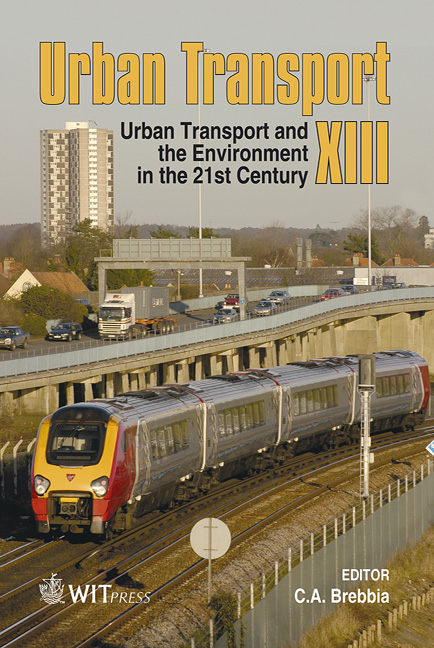Logistic Net Working To Reduce Cost And Environmental Impact For Urban Cargo Deliveries
Price
Free (open access)
Transaction
Volume
96
Pages
9
Published
2007
Size
942 kb
Paper DOI
10.2495/UT070101
Copyright
WIT Press
Author(s)
D. Tacla, R. C. Botter, O. F. Lima Jr. & S. Suyama
Abstract
Cargo Delivery Operation in urban areas is a problem in all populous cities, and a critical problem in huge metropolitan areas. In the same way, if we think about central areas inside a commercial centre, it is a huge problem. The current prices of land in those areas can make it impossible to build adequate areas to receive large numbers of cargo vehicles, and to handle and unload cargo in commercial centers or malls. I addition, thousands of small and medium trucks circulating in the cities causes pollution, a lot more than necessary. How to balance it? Is it possible to keep controlled and adequate costs involved in unloading cargo, and at the same time help save the environment? The target of this paper is to reduce logistic costs and the environmental impact: optimizing vehicles, urban area and labor (commercial or malls). A consolidation site, at the entrance regions of the cities (or more than one), can receive cargo from industries and/or any other suppliers in small trucks, then operating a cross docking, consolidate cargo, plan optimized routes, and finally ship to the final destination. The additional costs generated for this cross docking site operation will be compensated for by the shipper’s last mile of transportation and reduced costs for receiving and handling the cargo by the final customer (a mall for example). Non-planned logistics between shippers and receivers brings many more trucks than is reasonable; with them come more traffic, pollution, and other costs; this gap that we see frequently in the market provides an opportunity for this study that if implemented can provide a mitigation factor. Finally, this paper shows a numerical simulation with a real database to prove the proposal’s study efficacy. Keywords: logistic net working, cargo transportation, urban delivery, traffic, pollution, environment.
Keywords
logistic net working, cargo transportation, urban delivery, traffic, pollution, environment.





